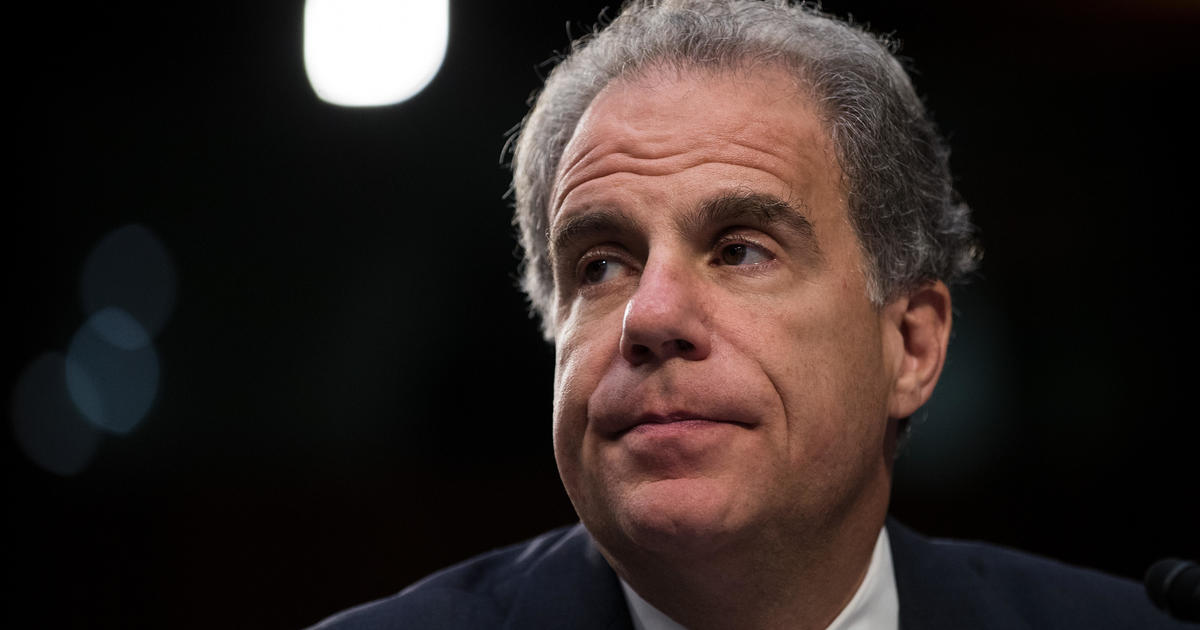
The watchdog for the Justice Department, Inspector General Michael Horowitz, has released his findings into the legality and legitimacy of an October 2016 surveillance warrant for a former Trump campaign aide which explored his alleged contact with Russian officials.
The title of the IG’s report is: Review of Four FISA Applications and Other Aspects of the FBI’s Crossfire Hurricane Investigation. Here are some highlights from the report:
The FBI ran confidential human sources against a high-level Trump campaign official who was not subject of the investigation. But the necessary approvals were obtained, the report says.
“…[T]he FBI conducted several consensually monitored meetings between FBI Confidential Human Sources (CHS) and individuals affiliated with the Trump Campaign, including a high-level campaign official who was not a subject of the investigation,” the report says. “We found that that the CHS operations received the necessary approvals under FBI policy.”
Trending News
The report does not find the FBI showed political bias in the investigation:
“We did not find any documentary or testimonial evidence that political bias or improper motivation influenced the FBI’s decision to conduct these operations… no evidence that the FBI attempted to place any CHSs within the Trump Campaign…”
The report finds that the FBI investigation, also known as “Crossfire Hurricane,” opened in July 2016 was justified and properly predicated.
“We found that Crossfire Hurricane was opened for an authorized investigative purpose and with sufficient factual predication,” the report says.
The scope of Horowitz’s 434-page report was later broadened to include the FBI’s decision to open a counterintelligence investigation in July 2016 into any links between the Trump campaign and Russia. The nearly two-year investigation, which reviewed over a million records and involved over 100 witness interviews, also probed the surveillance warrant renewals that extended intelligence collection on former Trump campaign aide Carter Page until the late summer 2017. Page was never charged with any crimes.
Horowitz’s report comes at the height of impeachment proceedings in the House of Representatives, on the day that the Senate Judiciary Committee is holding its second impeachment hearing.
The report probed whether the Justice Department’s and FBI’s leaders act with bias toward against President Trump during their investigation.
The inspector general will testify before the Senate Judiciary Committee to discuss the report on Wednesday.
Read the full report here.
The inspector general’s report is not the final word on the origins of the investigation. The U.S. attorney for Connecticut, John Durham, was also tasked by Attorney General William Barr to investigate the origins of the FBI probe into the Trump campaign. Durham’s probe is now a criminal investigation. The change gives Durham the authority to issue subpoenas to witnesses and documents, as well as impanel a grand jury.
Before he took office as attorney general, Barr said he had “a lot of questions” about intelligence activities involving the Trump campaign in the summer of 2016. He told CBS News’ Jan Crawford in May that “some of the facts don’t hang together with the official explanations of what happened.” At the time, he thought “there was probably a failure among a group of leaders there at the upper echelon.”
But Barr expressed concern that Horowitz’s probe might not be sufficiently comprehensive because he had “limited powers,” he told Crawford. Horowitz would not be able to compel testimony and didn’t have the power “to investigate beyond the current cast of characters at the Department of Justice.” He explained that Horowitz’s ability to obtain information from former officials or agencies outside the Justice Department was “very limited.”
President Trump and his allies believe that the FBI relied on insufficient evidence to request a FISA (Foreign Intelligence Surveillance Act) warrant to surveil Page. The FBI’s investigation was handed off to special counsel Robert Mueller in May 2017. Mueller concluded his 22-month probe earlier this year.
Mr. Trump has repeatedly referred to the investigation into his campaign as a “witch hunt.” But by Mueller found that there were links between Russian individuals and campaign officials, and confirmed that Russia interfered in the 2016 election with the goal of aiding Mr. Trump’s campaign.
This is a developing story and will be updated.

